The other day I was on the checkout line of the local 99 cent store – one of those places with a garish pink sign outside proclaiming I was in “Discount Heaven” (except it’s missing lights so it reads more like “Disco Heave”) – when I struck afresh by the absurdity of something I’d been accustomed to for so long I’d forgotten how stupid it was.
Lulled into half-sleep by the sluggish movement of a single register line, with both my eyelids and the bag of chips I was clutching starting to slip, I was jarred to attention by a shrill shout of “Next Guest!”

I was startled as much by the word “guest” as by the abrupt loudness. I had gotten used to being a “guest” in Starbucks and J Crew ages ago, but I didn’t remember ever being one in here. It hit me just how ridiculous it was to be referred to as a “guest” for the purpose of a thirty second transaction over a fifty cent snack bag in this dusty little place, with it’s leaning-tower-of-carton cluttered aisles and nonexistent helpful salespeople.
“Guest” obviously sounded as ridiculous to the weary looking employee ringing up my small purchase. She may have been instructed to use the word but her tone implied that I was just the beginning of another blister on her tired feet, for all the enthusiasm she displayed in her asking me to come on down and visit her at the ol’ register.

We’ve become so used to the title of “guest” everywhere we go that we don’t even notice it anymore. Once upon a time we were just plain old customers. Only occasionally, like at the hairdresser, we became “clients”, implying some sort of longer term commitment.
Back then the term “guest” was reserved for visitors to the homes of friends and relatives, and hotel stays. Over the past several years the word has spread like the plague among retailers and it seems like, any minute, NYC hot dog cart vendors will start addressing us like we’ve dropped in for a weekend stay and they’ve made up their best room and put out the monogrammed hand towels.

Why have we changed from customers into guests? Shifts in language can be naturally occurring, but in this case I’m pretty sure the spread of “guest” is a deliberate and diabolical scheme by the retail industry to shift the burden of customer service off of their shoulders and onto those of the paying public.
The word “customer” is rooted in the concept of custom, or habit, the idea being that you were habitually giving your business to the local grocer, tailor, eatery, etc. Salespeople used to say things like “Good day and thank you for your custom, Moddom,” (and still do on bad Britcom reruns). If you made a habit of spending your hard earned cash in a certain place, you expected to be rewarded with consistently good service. Remember the saying “The customer is always right.” Many a retailer would like to forget it. The downside of the word “customer” for businesses is that it can be followed by that other pesky word “service.”
With the emergence of the guest, there is no longer any such thing as a customer. It follows that there’s also no longer any such thing as customer service, which, as we know, is a lost art that has disappeared into the murky void of “Please press 1” phone menus and website dropdown lists that never have the choice you want.
Good customer service requires well trained employees who care (or can at least pretend to care) about pleasing customers, which means they usually have to be paid reasonable rates or commissions. It isn’t easy to provide good customer service in an environment that’s understaffed with the under-paid, as more and more retail establishments have become. It’s absolutely impossible in places that now feature the “convenience” of self checkout. In theory, self checkout is supposed to be a streamlined, time-saving process but, in practice, it involves standing around staring at a screen stuck on “One moment please – system processing” and waiting for the one available human salesperson to come and press the right buttons for you.
Unlike “customer,” “guest” has the advantage of dual implications, which retailers have cleverly figured out how to exploit. On the one hand “guest” implies a welcoming “put your feet up; can I get you something to drink” sense of hospitality. On the other hand (if the voice in your head is my mother’s) it carries a “sit up straight, keep tour voice down, get your feet off the table; remember you’re a guest in someone’s home” message to mind your manners. Therein lies the proof that the whole guest trend is just another sneaky bait-and-switch tactic by the retail industry – crowd control disguised as hospitality.
But how did this happen? Who is responsible? The answer can be tracked down to an upbeat, show-stopping tune foisted on us by that master of corporate marketing – Disney. That’s right, it was the fiendish folks at Disney who sparked the whole “guest” movement with a lovable little cartoon candle called Lumiere in the 1991 film Beauty and the Beast.
In Beauty and the Beast, a cartoon princess-to-be named Belle is invited by Lumiere and a chorus of cutlery to “Be Our Guest” at an enchanted castle. Frankly, the song always annoyed me because Belle is starving and comes downstairs for a lavish meal but barely gets a bite to eat what with all the singing and dancing.

The song was a big hit and won an Academy Award, and Disney began using it as a marketing tool (a move no doubt planned before the first sketch was inked onto the paper), with ads inviting visitors to come and “Be Our Guest” at their various theme parks.
Last year, I went on a trip with my family to be their “guest” but things did not go as expected. While cartoon heroine Belle received, at the conclusion of her stay with the Beast, a castle, a crown and a handsome prince, all I got was a photo with Mickey and a frighteningly large Visa bill. True, Belle had to spend a brief moment or two in the dungeon before being granted access to the fabulous library/ballroom and wardrobe of fancy gowns, but I think my wait on the line to ride Pirates of the Caribbean should have qualified as equivalent dungeon time.
The Disney ad campaign gave out the impression that “guest” at Disney World meant being catered to in royal fashion, but my experience had more of a mind-your-ps-and-qs-careful-of-the-knickknacks-visit-to-Aunt-Marion’s house feeling. Having taken on the title of “guest” I felt intense pressure to obey the unwritten rules of the mouse governing the “happiest place on Earth.”
The number one rule for all Disney guests is that grinning like an idiot is a requirement no matter how hot the hot sun, how endless the queue, or how screwed up the dinner reservations. Requiring everyone to stand around with smiles plastered on their faces makes it virtually impossible for a guest to complain irately to Dopey that an unruly mob of 30 kids from the local day camp just cut in front of her on the line to Dumbo, because – God Forbid! – such negativity might spoil the magical Disney experience of the other guests. This places the burden for ensuring each others’ magical holiday experiences firmly on the guests, rather than the theme park. What a racket!
This is why, over the past 15 years, every retailer under the sun from Target to Taco Bell to my drab little discount store has hopped on the guest monorail, putting the the responsibility for smooth service on the shoulders of their customers – and we’ve all accepted it uncomplainingly.
We’ve also accepted the inverse relationship of the level of service we are supposed to provide for ourselves to the amount we’re charged. We barely notice anymore that the cafes with most exorbitantly priced mocha-lattes are the ones that require us to put in our own milk and sugar. Customers get served. Guests are expected to fend for themselves as if they’re standing around their best friend’s kitchen.
I have decided it’s time to reclaim the word “guest” and re-interpret it to mean that, when I am your customer, my wish is your command. If I must be a guest everywhere I go, I’m sticking strictly to the “put your feet up” implication, spreading myself out and making myself at home.
I have made up my mind that I will be revolting. (Like “guest,” “revolting” can be taken two ways, and I don’t mean it in so much in the revolutionary as in the disgusting sense of the word.)
Look out retailers – when this guest drops in to your establishment you can expect messes to be made so forget about Beauty and the Beast and get out the line of Sorcerer’s Apprentice mops and buckets.
While I’m spilling things and sneezing loudly all over your other guests, I will demand whatever it is you’ve just run out of and make you go find it in the depths of your stockroom. I will overstay my welcome, leave towels on the floor of your bathroom, empty your fridge, and run up your phone bill. I will make it my business to get hold of small, screechy children with excessively runny noses and I will bring them with me when I grace your place of business with my presence and let them run around doing whatever they please. So what if you’re a clothing store and not a restaurant. You will still be expected to fetch me a sandwich and a cup of coffee. After all, I’m your “guest.”

Until…whenever
Lazy and Hazy
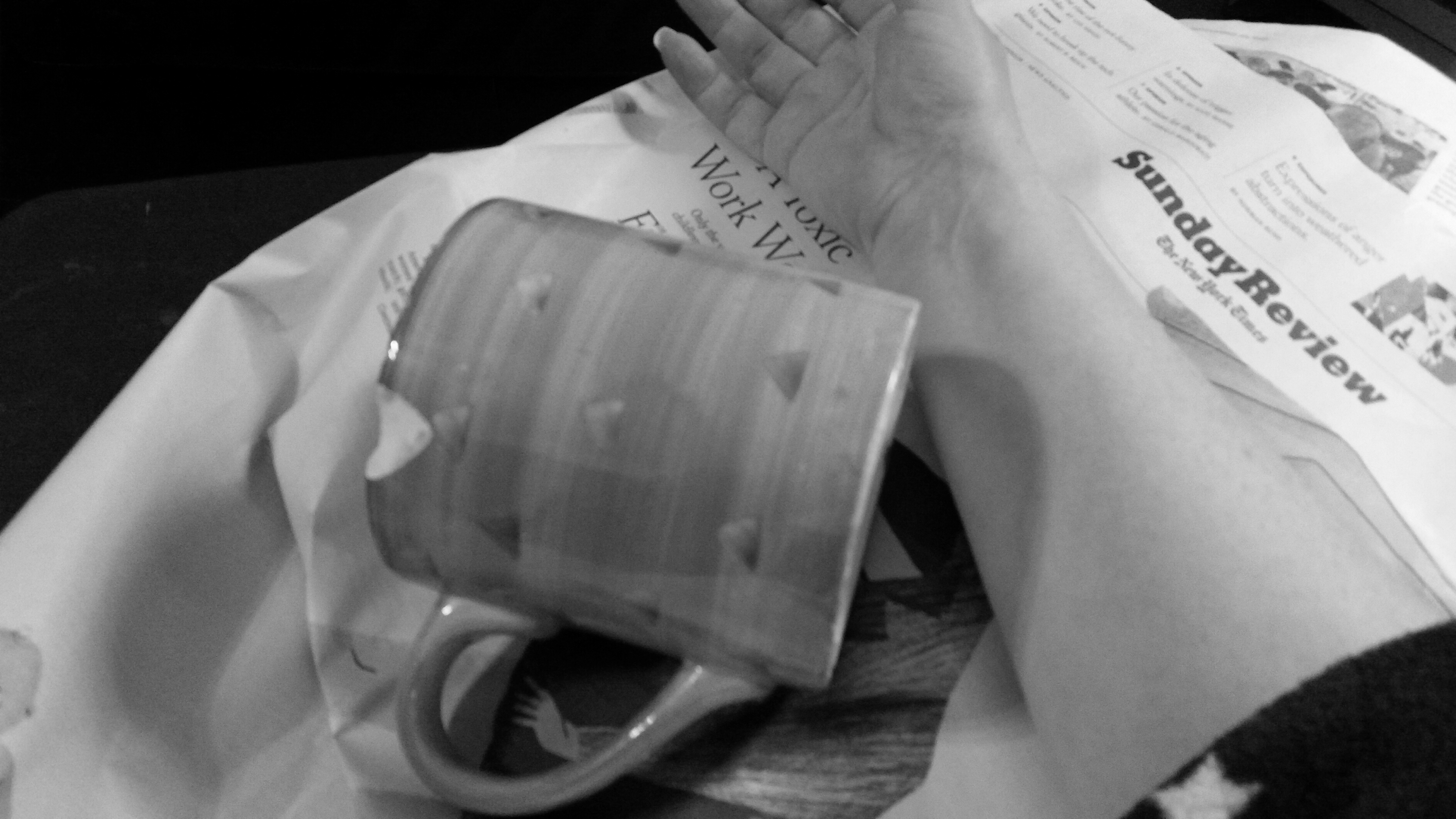

















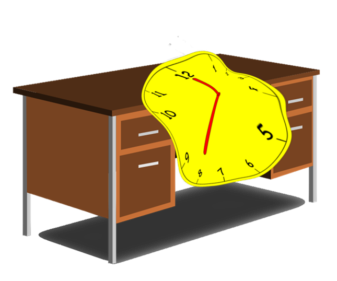

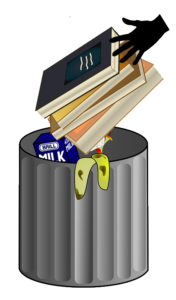


















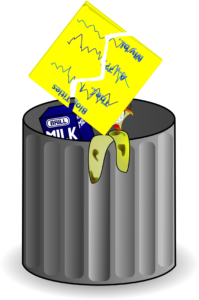



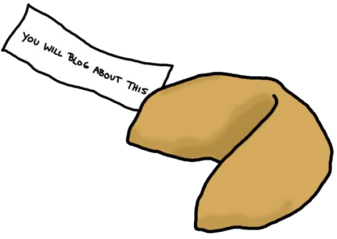
 Go to the nearest Chinese restaurant and stock up on lo mein, chow fun, and fried rice and find a geeky significant other, friend, or acquaintance with technical knowledge. Techno-geeks love carb-laden Chinese food as much as they do working on computery, internetish stuff. One of these is bound to get a whiff of goodies and will happily offer to take care of anything tech-related for your blog for nothing more than a quart of lo mein. It’s a fair trade so you can even slap a Fair Trade label somewhere on your main blog page to let everyone know how socially conscious your blog is so they can feel really good about reading it no matter what it says. Just don’t make the mistake I did and choose a spouse as your techno-geek helper. Unlike other techno-geek assistants, who will do as you tell them without wondering why, a spouse is likely to become too involved in areas of the blog that don’t concern them, throwing a lot of annoying comments and questions at you like “What are you using that picture of us for?” or “Are you writing about me?” and other things they have no business knowing. You will waste a lot of time repeating phrases like “Never mind that – just get the f…ing picture on the f…ing page!” This can slow the process down quite a bit. It’s one thing for you to take your sweet time with things, but the hired help should snap to it!
Go to the nearest Chinese restaurant and stock up on lo mein, chow fun, and fried rice and find a geeky significant other, friend, or acquaintance with technical knowledge. Techno-geeks love carb-laden Chinese food as much as they do working on computery, internetish stuff. One of these is bound to get a whiff of goodies and will happily offer to take care of anything tech-related for your blog for nothing more than a quart of lo mein. It’s a fair trade so you can even slap a Fair Trade label somewhere on your main blog page to let everyone know how socially conscious your blog is so they can feel really good about reading it no matter what it says. Just don’t make the mistake I did and choose a spouse as your techno-geek helper. Unlike other techno-geek assistants, who will do as you tell them without wondering why, a spouse is likely to become too involved in areas of the blog that don’t concern them, throwing a lot of annoying comments and questions at you like “What are you using that picture of us for?” or “Are you writing about me?” and other things they have no business knowing. You will waste a lot of time repeating phrases like “Never mind that – just get the f…ing picture on the f…ing page!” This can slow the process down quite a bit. It’s one thing for you to take your sweet time with things, but the hired help should snap to it!